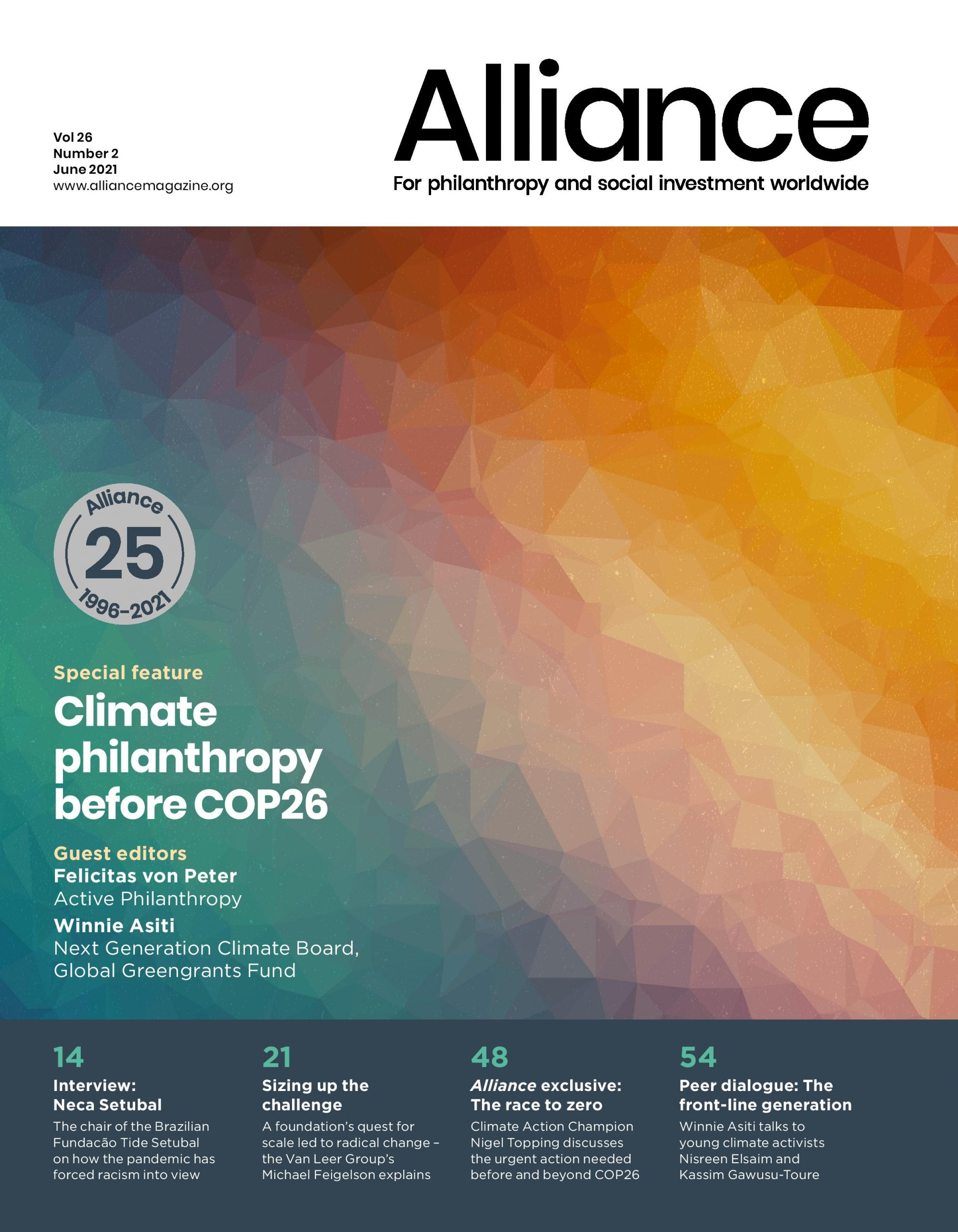Philanthropy needs to step up its partnerships with other sectors to bring about the radical transformation that the world needs
The Covid pandemic has brought the climate crisis to the forefront of the international agenda and highlighted the convergence of environmental and human health tipping points. In order to ‘emerge’ from this planetary emergency with a new holistic vision for building resilience to future shocks and enhancing human well-being, speed and scale are key.
From growth to well-being
Funds to support the radical transformational economic and societal shift we need remain elusive. Yet, there is cause for optimism. After nearly 50 years of advocating for systems change, the ‘Limits to Growth’ thinking of the Club of Rome finally resonates with a broad audience. A new generation of political leaders has embraced new economic models that shift from a growth to a well-being paradigm within the planetary boundaries. For example, the Wellbeing Economy Governments (WEGo) of Finland, Scotland, Iceland, New Zealand and Wales have adopted such a people-planet-prosperity approach and several cities across the globe have introduced the Doughnut model.[1]
Systemic transformation implies supporting short-term policy decisions (for example, investing in solar energy or regenerative agriculture projects) for long-term systems shifts.
Systemic transformation implies supporting short-term policy decisions (for example, investing in solar energy or regenerative agriculture projects) for long-term systems shifts including shifts in consumer behaviour (decreasing energy usage or diet changes) and production patterns (circularity, consumption and waste reduction). Importantly, a systemic approach also implies new models of decision-making and governance, including a need for more radical partnerships that bring to the table actors across diverse value-chains and tap into the knowledge of policymakers, business, science, communities and foundations, for a more holistic transformative delivery.
Transformation in theory and practice
At the Club of Rome, we strive to lead by example in breaking down system silos and exploring what systems transformation looks like in theory and practice, through scientific and economic modelling as well as radical collaboration and inclusive dialogue.
The Earth4All project, for example, in collaboration with the Potsdam Institute of Climate Impact Research and the Norwegian Business School, brings together economists and scientists from across the world to develop dynamic transformation models along five system pathways: energy, food, inequality, poverty and population (including health and education). The results of these models will be used by policymakers to co-create policy scenarios and toolkits for new economic development and key sectoral shifts.
2020 has not only shown us the possibility of transformational change across society, from new business and governance models to citizen partnerships, but has demonstrated the power of radical collaboration.
The Planetary Emergency Partnership brings together over 300 actors across the traditionally siloed climate, biodiversity/nature and health communities to adequately address the planetary emergency, advocating for the implementation of a plan which sets clear ambitious targets and timetables comparable to the emergency at hand to ensure the protection of the global commons, decarbonisation and circularity pathways as well as a just and equitable transition.
The missing link
We need philanthropy to play a more central role in the design and co-creation of this future. Foundations can choose to invest in a sustainable recovery in the short term and resilience-building in the long term. Directing funding to new economic, governance and financial systems planning as well as resilience building at the local, national and international levels would be a great start, so would targeting efforts that enhance high-impact climate mitigation and adaptation, circular and regenerative economic models as well as sustainable resource use.
The success of this ‘Super Year for Climate’, the lead-up to COP26 and beyond, will be measured by the extent to which we collectively manage to optimise our efforts for people-planet-prosperity together. 2020 has not only shown us the possibility of transformational change across society, from new business and governance models to citizen partnerships, but has demonstrated the power of radical collaboration. The missing link is greater partnership with philanthropic organisations, who can truly move the needle further and faster, so that ‘emergence from emergency’ becomes a reality: funders are in a unique position to take risks and allocate money as ‘R&D’ for societal and economic change and hence excellent partners in funding the radical transformation the world needs.
Sandrine Dixson-Declève is co-president of The Club of Rome.
Email: president@clubofrome.org
Twitter: @SDDecleve
Featured photo:Les Copland/DoubleTake Creative
Footnotes
- ^ A visual, doughnut-shaped framework for sustainable development by University of Oxford economist Kate Raworth.







Comments (0)